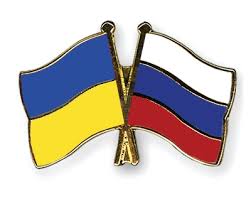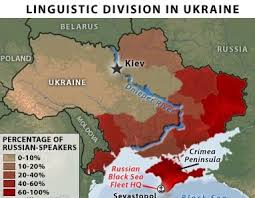
For the past two weeks, since all this problem sprung in Ukraine when their prime minister stepped back about some commercial agreements with Europe, presumedly influenced by Russia, and the ultra nationalists rioted and took the streets (with or without legitimate reasons, this I cannot tell), leading their own kin to predictable — almost suicidal deaths, and their country to the verge of a civil war, my Facebook wall has been overcrowded — virtually overwhelmed with posts from my Ukrainian contacts, which are quite a few.
Indeed, along the three months I spent in Ukraine I met lots of people, most of them quite nice and friendly; diverse people from different parts of the country, different backgrounds and, of course, different political views. And, among these acquaintances, rarely there was any who did not clasify themselves as pro-Russian or pro-European. Despite sharing, as I perceived them, the same character and culture (with some exceptions), I got the notion (accurate, I hope) that their political views were clearly divided in basically two groups: those who believed in a new country, totally diferentiated from Russia in any possible way, specially the language (though they’re so similar that I could understand Ukrainian despite being studying Russian), and those who longed for their Sovietic era and wouldn’t mind — when not clearly desire, to become again a part of Russia, or much closer partners.
But there was also an essential, though subtle, difference between my friends from one type and the other: in general, there were more students and young people among the “staunch independentists”, and more workers and older people among the “Russia nostalgics”, so to say. Consequently, I also met better English speakers among my West Ukraine acquaintances, who were also sensibly more into the internet and social media, and worse-to-no English speakers among the East Ukraine ones, who also were more alien to the new technologies; the former had the time, age and resources for being in the “global world”, whereas the latter were perhaps too busy working in their ugly industrial cities.
This approach may seem too simplistic, but it’s not so; as a matter of fact, I got twenty times more Facebook contacts among the pro-Europeans than among the pro-Russians (if I’m allowed this reduction).

Now, where am I heading? My point is simple: based on my own experience I’d venture the thesis that the perception we’re getting in Europe about the events nowadays shaking Ukraine, is far from being representative of the Ukrainian reality. It’s too biased, too incomplete. We’re mostly hearing the voice of West Ukraine, the pro-European ones, the stalwark independentists; the others don’t reach us, they don’t speak English, they don’t use Facebook nor Twitter, not in English at least, nor in German. Their voices can’t be heard by us Europeans, or westerners in general.
They’re the voiceless Ukrainians; but I’d like to hear their opinions too. Otherwise I won’t be able to get anything close to an accurate idea about what’s going on in Ukraine.
-
Recent Posts
Archives
Categories
Meta

Good points and good questions. My question is can the E. U. continue expanding? Until recently with the anti state/ big government Obama administration, Americans understood that local and state run governing was wise. As wise as our founders. My beautiful constitution is being raped to bring more control to the federal government. This centralization is already failing as the founders knew it would. My question is why risk the E. U. Breaking apart under it’s own weight? Quit expanding before you lose it all. A central government cannot manage such vast areas and and populations. Ukraine in the E.U.? If you’re not willing to bring body bags home to E.U. countries and stand up to Putin; then stop with the bullshit. This is not a game.
That’s a bit off topic, but well.
In my ignorant opinion, the answer to your question is more than clear: Europe not just cannot keep growing, but actually should shrink. The problem, however, as I see it, is not the body bags, but the economics. Actually, I don’t think the EU will break under its own weight, and certainly not because of too much “centralization”, but right the other way around: EU countries are still too “independent” and free to do their wills, free to even break the club rules with little to no fine. There are too many P.I.G.S. in this pigsty. How can Finland or Germany share currency with Greece or Cyprus without something getting badly broken? It’s not realistic and cannot work for long. I foretell a downfall of the common currency. And I hope I’m wrong.
Ukraine in the EU? No way. They lag toooooo much behind, and they’re too many. They’d rather make friends with Russia and try to get back the gas at Russian price, instead of European price. But the body bags? I don’t see why.